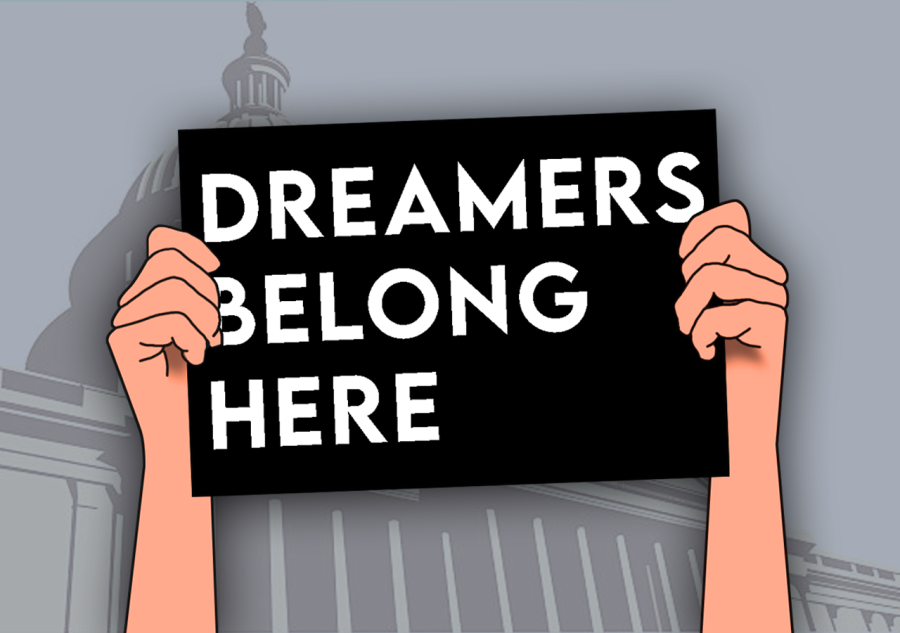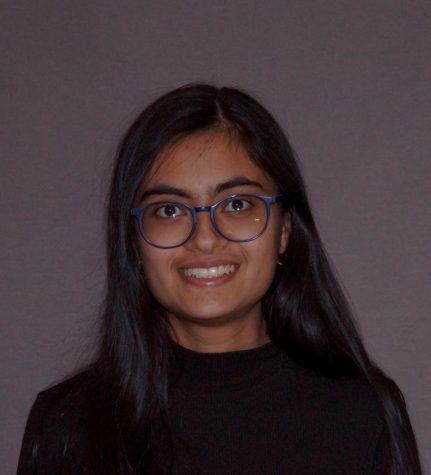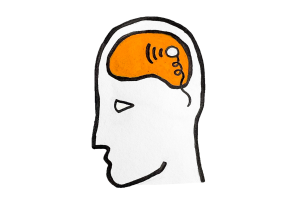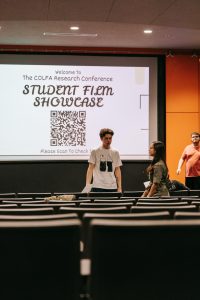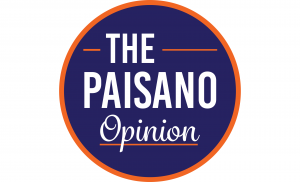Dreamers Resource Center supports UTSA’s undocumented student population
November 2, 2021
According to its official website, the Dreamers Resource Center at UTSA was created to “assist Dreamers and students with mixed-status families.” The Center has been active since 2018 and was created as a result of the work of UTSA students.
Damaris Ibarra, Assistant Director at the Center, explained the process that led to the creation of the Dreamers Resource Center.
“ [the Center was formed as a result of the] efforts of students that were seeking out more resources [for Dreamers and undocumented students at UTSA]… [students] figured they needed a place that would provide the resources to this particular student population,” Ibarra said. “So together with some of our faculty at UTSA, they wrote [a] proposal that was submitted to the President’s office. The Dreamers Resource Center was one of the first initiatives that President Eighmy took in, in October of 2017. Once again, the Center was officially established in January of 2018.”
Today, the Center serves as a resource for undocumented students at UTSA while also giving an open sense of community to its student population.
“We collaborate with other units across the University and with other San Antonio partners in providing events and resources for Dreamers and undocumented students, that actually extend to a wide range of services,” Ibarra said. “We’re talking about, from services school within [the University’s] Wellbeing Services, financial aid, the graduate school, [to] collaborating with our community partners … in providing referral to legal services that typically come in the form of non-profit organizations.”
The Center also aims to educate the UTSA community about Dreamers and undocumented students through “dreamer-ally” training as well as other events. Last week, the Center partnered with “I Stand With Immigrants” on National Immigrants Day in an effort to educate the UTSA community about the immigrant community in San Antonio.
While the Center does host events like these for the UTSA community, Ibarra explained that the Center also conducts events that are limited to the students the Center was created to help.
“In our efforts to create [a] community for the students, we try to ensure that … some of our events are actually only for Dreamers and undocumented students,” Ibarra said.
One of the main reasons for this is to ensure students don’t feel compelled to disclose their immigration status openly. Conducting events that are only for the Center’s Dreamers and undocumented students has, as Ibarra explained, indeed contributed to a sense of community.
“However, when we are having more of [these] events that are only for the Dreamers and undocumented students, then they are able to meet other students that might be within their same major, or maybe they are coming from the same transfer school or from the same high school. So that sense of community and academic relationships starts to build up,” Ibarra explained.
The Center’s ability to conduct in-person events was limited due to the pandemic, just like several on campus organizations and facilities. Ibarra explained that, as the University transitions out of pandemic-era restrictions, the Center continues to offer both online as well as in-person events to its student population.
“Having Zoom has really helped us in providing the services to our students while also cutting down … the time that [students] spend travelling,” Ibarra said. “We also offer some of our events in person for those that are interested. So, it’s really been a combination of listening to the students [and] what they want; [whether] they want events to be in-person and also listening [to] those students who [prefer] to have [events] on Zoom. When we have educational events, then [students] prefer for those to be [on] Zoom or online. However, when we have more of a social event, then those we are trying to [conduct] more in person, little by little.”
Apart from aforementioned events, the Center is currently focused on helping Dreamers and undocumented students at UTSA in filling out the TASFA application, which is a way for eligible students to received financial aid. Ibarra explained that the Center is currently hosting workshops to guide students on the same.
“Right now, this is a very special time for us because [of the] Texas Application for State Financial Aid … that a lot of our Dreamers and undocumented students can qualify for here in Texas. [The application opened] on Oct. 1,” Ibarra said. “Right now, we have what we call the TASFA workshop series. This is, right now, our main goal and one of the main events that we have for our students because we want to ensure that they are submitting this documentation for their financial aid [before] the priority deadline.”
The Dreamers Center is an on-campus resource that, through events and workshops, provides support and guidance to the Dreamers and undocumented students at UTSA. Ibarra emphasized that, going forward, the Center wants to continue to provide its student population with a sense of community while also celebrating their achievements.
“We are supporting our Dreamers and undocumented students by providing equitable opportunities that other non-undocumented students have,” Ibarra said. “So, we want to smooth out the access for students that might be interested in having internships, we want to provide more resources in the particular area. At the same time, we also want to celebrate their accomplishments, like other organizations do. So, we are moving forward with our new tradition of celebrating our Dreamer and undocumented student graduates as well.”
Ibarra also called on the UTSA community to reach out to Center in its efforts to build a “Dreamer-ally community” at the university.
“We encourage our students, faculty and staff to join our Dreamer-ally trainings because this is a training that is created for them to understand more about the students’ rights as well as the different immigration reforms that do affect our Dreamers and undocumented students,” Ibarra said.
“The Dreamers Resource Center is here to promote a welcoming campus climate…so, we really want for our USTA students and our UTSA community to understand that our hopes and the work that we do is to provide access and equitable higher education opportunities for our Dreamers and undocumented students,” Ibarra concluded. If students need access to the resources the Center has to offer, contact the Center’s email: dreamers@utsa.edu.


